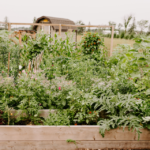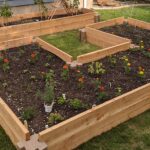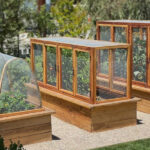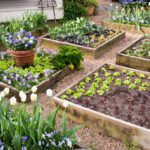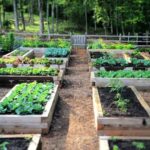Raised bed gardening is a popular method of growing plants in a contained space that is elevated off the ground. These beds are typically constructed using a variety of materials such as wood, bricks, or concrete blocks. The benefits of raised bed gardening are numerous, making it an attractive option for both beginner and experienced gardeners.
One of the key advantages of raised bed gardening is the ability to customize the soil composition. By filling the raised bed with a specific mix of soil, compost, and other organic matter, gardeners can create the ideal growing environment for their plants. This is especially useful in areas where the native soil is poor or lacks necessary nutrients. Additionally, the elevated nature of the bed allows for better drainage, preventing waterlogging and root rot.
Another benefit of raised bed gardening is improved accessibility and ease of maintenance. The raised height of the beds makes it easier for gardeners to reach plants without bending or kneeling, reducing strain on the body. This is particularly helpful for individuals with mobility issues or limited space for traditional gardening. Raised beds are also easier to weed and tend to, as they are contained and clearly defined.
Raised bed gardening can also extend the growing season, allowing gardeners to start planting earlier in the spring and continue harvesting into the fall. The soil in raised beds warms up faster in the spring, providing a longer growing period for heat-loving plants. Additionally, the elevated nature of the beds can protect plants from frost in the fall, extending the harvest season for cold-sensitive crops.
One key consideration when starting raised bed gardening is the location and orientation of the beds. It is important to place the beds in a spot that receives ample sunlight throughout the day and is easily accessible for watering and maintenance. Additionally, consider the wind patterns and potential for pest infestations when determining the placement of raised beds in your garden.
In conclusion, raised bed gardening offers numerous benefits for gardeners of all experience levels. From improved soil quality and drainage to increased accessibility and extended growing seasons, raised beds provide an ideal environment for growing healthy and productive plants. With careful planning and maintenance, raised bed gardening can be a rewarding and successful method for growing a wide variety of fruits, vegetables, and flowers.




